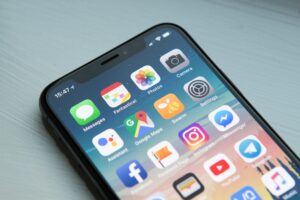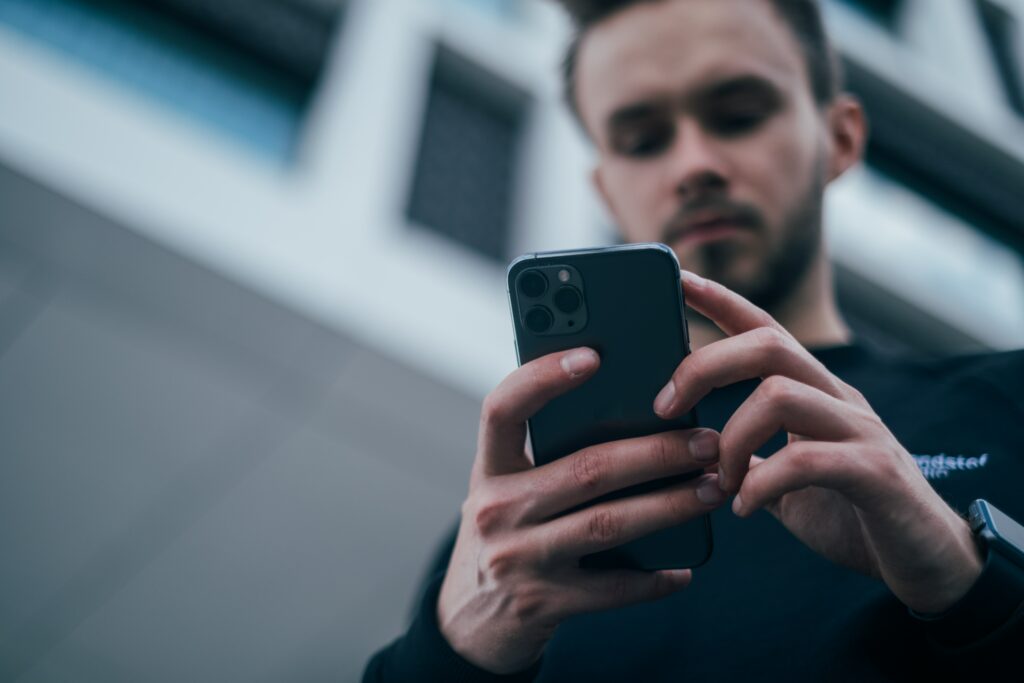Apart from being extensions of our hands, smartphones are acting as our convoluted, sometimes more accurate brains. It’s remarkable just how much information our compact devices contain – social accounts, gigabytes of media, documents, applications, and access to multiple platforms. For convenience, we keep both our personal and professional data inside our phones. At first sight, this looks logical and safe but it’s not. Unsecure networks and Bluetooth, spyware, social engineering, and data leakage, pose an enormous danger for regular users worldwide.
Usually, we tend to relax when it comes to our mobile security and we’re more conscious about physically keeping our phone than protecting our digital identity and preventing scams. In the meantime, mobile phishing attacks hit an all-time high last year. According to a Comparitech survey, the frequency of phishing attacks in 2021 not only rose three times but the attempts became more sophisticated and successful.
Are we neglecting our phones? Ignorance is not bliss if you rely on hackers’ mercy – they’ll find you on your work PC, tablet, phone, and even through your smartwatch!
Let’s take a look at the most common misconceptions regarding your mobile security and find the truth behind them:
1. Phones are not targets
As we mentioned above, phones ARE within the side view of cyber criminals. The number one reason for this interest is exactly people’s oblivion. They don’t take measures like installing VPN, protecting their passwords, and being mindful of the open Wi-Fi networks they use. Most smartphone owners also don’t keep their files on a cloud, instead, they simply utilize the free space they have on their device – the more space, the better. Unfortunately, that’s an open invitation to hackers to obtain your most sensitive information like personal data, banking details, family members’ photos, contacts, addresses, business documents, etc.
Whenever your phone starts acting weird, don’t just assume you need an upgrade. Operating slowly, wasting battery quickly, showing suspicious pop-ups, redirecting you to bizarre webpages, and even becoming hot to the touch might be signs that your phone is hacked. Beware of unfamiliar social media activities and unrecognized email logs on your accounts too.
To keep such incidents from happening, you can pick а mobile antivirus software. Some of the other cybersecurity services available are identity monitoring, VPN, and safe browsing.

2. The brand/type of device you own protects you
Depending on who you ask, you’ll hear that Apple or Android is more reliable and less prone to cyber attacks. In fact, there are two more OS on the market that often remain overlooked – Blackberry and Windows Phone. However, in this analysis, we’ll focus on the advantages and vulnerabilities of Apple and Android.
Apple is famous for being the safer OS because is controlled by only one source and within a smaller ecosystem. In return, iPhone users should bare with the iOS limitations, such as fewer application options and regulated installs. On the contrary, Android’s apps are outbursting and their providers are not held accountable by anyone. It’s the particular mobile brand’s responsibility to imply security recommendations for its users. Despite Apple’s lean policy for downloading applications, the OS still might get affected by malicious software. The conclusion is that malware and lack of privacy can be harmful to all types of mobile device users.
3. Apps are totally risk-free
It’s amazing how many people believe that apps are safer than websites. In recent marketing research that we performed in order to study our audiences deeper, we learned that around 90% of respondents use their phones for running all their errands, whether that be personal, administration, or business tasks. Yes, apps are handy but don’t get fooled, they have many weak points security-wise. Moreover, they would most likely try to convince you to make in-app purchases. Alternatively, they will bombard you with ads. There’s nothing wrong with that but in some situations, this stream of offers might cost you. For example, if you’re a parent and you allow your child to play games and watch cartoons on your device, chances are that you’ll be targeted with kids’ commercials and subscription proposals. For a small child, it’s only natural to click and buy. This practice to manipulate children is not illegal but without a doubt, it’s not entirely ethical.
Another concern is that you never know which actual developer created the app you’re using. There are popular proven providers and yet, there are tons of other fake ones. Some developers are complete novices who experiment and unintentionally get you into trouble, others have the genuine goal to spy on you. For this reason, the cleverest thing you can do is to manage your app permissions and updates regularly.

4. You don’t have to change settings or functionalities
False! Your privacy and security settings won’t work on their own, you need to check in and contribute. To this day, no phone operating system is updating on autopilot. Whether you like it or not, you have to interfere and give it a push and that’s an advantage.
Besides, we often dump downloaded files on our devices without bothering to erase them and they can become an access point for hackers enabling them to reach our important information.
Regardless of how your phone has spent its life, sooner or later, it gets old and it will no longer be secure enough. Some devices will be working for long years but they will not have adequate protection. To check the exact optimal lifespan of your device, you can simply search for “end of life” in the settings. For reference, Samsung updates devices for up to four years, Apple provides regular updates for iPhones for about five to six years, and Google supports its Pixel line of phones for at least three years.
5. Once your phone is gone, there’s nothing else you can do
There are several steps you should absolutely take if you lose your phone or it gets stolen. First, of course, try to find it by using Find my iPhone or respectively Device Manager on Android – google.co.uk/android/devicemanager. You can even set a ringtone for your missing phone and hear it if it’s in the vicinity. If that doesn’t work, proceed and lock it. Now you can continue your investigation and finally, if you’re certain you can’t discover it, you should erase all the data recorded on it. To be able to do that, you have to preset in advance.
Do you see why it’s important to think of your phone’s last day right from the start? Ideally, to be always prepared, schedule regular backups on a regular basis. This way, you will have one less thing to worry about if your device sadly disappears. On a more practical note, signing up for a prolonged mobile warranty is also a smart move.
The professional and the private aspects of our lives merge through the constant use of technology and there’s no way to stop or influence this trend. We can only improve our habits.
Securing your phone is part of your personal digital protection. A business cyber insurance policy won’t cover your smartphone but a product that is tailor-made to fit your individual needs will be your best bet.
…
Read more articles like this one on our blog and follow us on Facebook and LinkedIn to be on track with the latest content!




